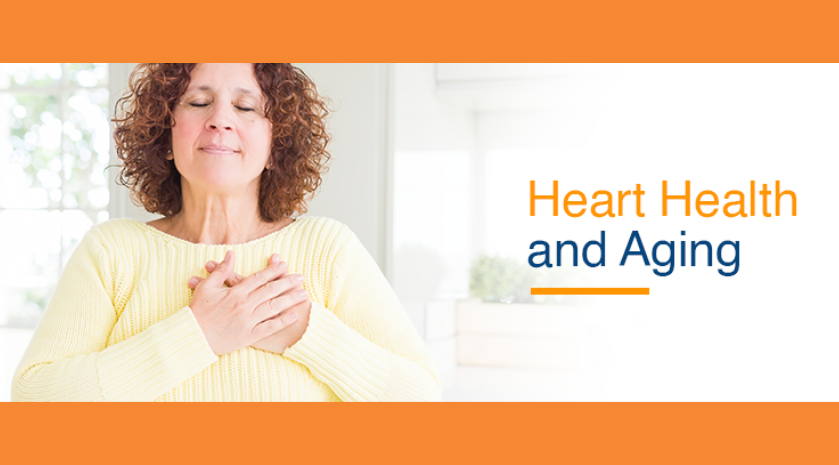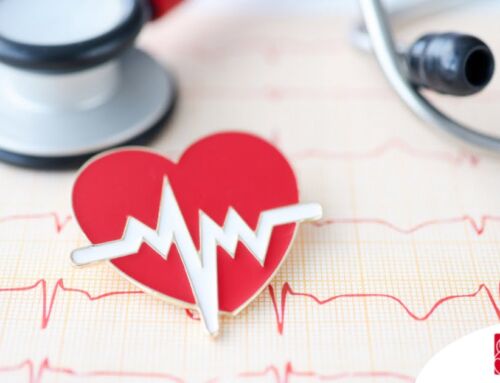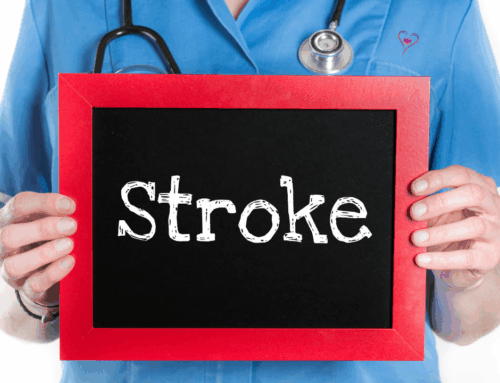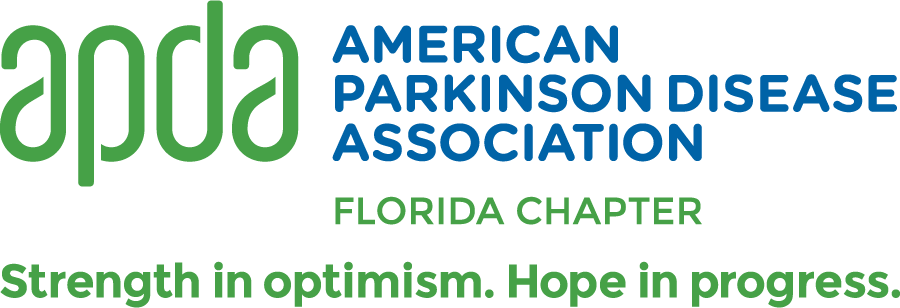Everyone knows your body begins to change as you age. Things shift and sag, and your muscles aren’t quite as strong as you remember them being in the past. And don’t get us started on those gray hairs!
It’s easy to notice the changes to your hair and skin, but a lot of people tend to forget age alters what’s happening inside their bodies, as well.
You probably know the risk of having a heart attack can increase with age, but a heart attack is only one of many effects of aging on the heart. Heart health isn’t something to take for granted — it’s something to cherish and protect as you age.
How Heart Health Changes With Age
Just like the rest of your body, your heart can slow down and encounter some changes that can lead to difficulties with heart function or, in some cases, in other areas of the body. As you age, your heart may not beat as fast during physical activity. The risk of a heart attack or stroke increases. Other health issues, such as hypertension, thyroid disease or diabetes, can weaken the heart or prevent it from working as it should. In some cases, chemotherapy or family history may play a role in your heart’s condition.
One of the common terms you’ll hear about your heart and aging is “heart disease.” Heart disease and aging often go hand in hand, but what exactly is it?
Heart disease is an umbrella term that can refer to heart attacks and heart failure. What’s the difference? A heart attack occurs suddenly when an artery to the heart becomes blocked, preventing blood flow. Depriving the heart of oxygen causes the heart muscle to stop working. On the other hand, heart failure is a more gradual process that happens when your heart muscle becomes weak and struggles to pump blood throughout your body.
You may hear the terms “heart disease” and “cardiovascular disease” used interchangeably. Cardiovascular disease more often refers to heart conditions that weaken or damage your blood vessels, while heart disease can also encompass conditions that impact the heart muscle or rhythm.
Although these diseases are two of the most common heart-related issues, there are many other ways your heart may change as you age.
1. Arrhythmia
Otherwise known as an “irregular heartbeat,” this term refers to a condition where an adult has a heartbeat that’s too fast, too slow or irregular. Arrhythmia typically happens because the heart begins to lose its ability to self-regulate. Over time, an irregular heartbeat can lead to stiff heart valves. When the valves stiffen, it can limit the blood flow in and out of the heart, which leads to a buildup of fluid in other areas of the body.
2. Arteriosclerosis
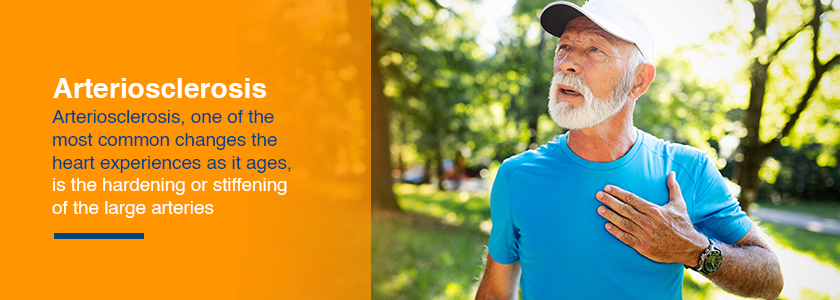
Arteriosclerosis, one of the most common changes the heart experiences as it ages, is the hardening or stiffening of the large arteries. This condition can lead to hypertension, aka high blood pressure.
3. Atherosclerosis
This medical term is a fancy way of referring to the buildup of plaque inside of your arteries. Over time, this buildup can prevent blood from flowing throughout your body the way it’s supposed to, reducing the body’s supply of oxygen it needs to maintain proper function. When the heart can’t receive adequate amounts of oxygen-rich blood, it can damage the heart muscle and put it at risk for several more severe conditions.
4. Enlarged Heart Chambers
Some older adults encounter a situation in which the chambers of their heart grow larger. As this happens, the walls of each chamber become thicker, which then means they can hold less blood inside the heart. Over time, this can result in atrial fibrillation, which is an irregular, rapid heartbeat.
Signs Age Is Affecting Your Heart
So how can you tell if you have an age-related heart condition? The symptoms of an aging heart can vary, depending on the kind of issue that’s developing. In some cases, you may not even realize there’s a problem with your heart until a medical test discovers something. Or, a heart attack could catch you off-guard. However, there are times when the human body sends some loud and clear signals that your heart isn’t functioning like it’s supposed to.
If you or a loved one are experiencing any of these symptoms, call your doctor or head to the nearest emergency room immediately. If you suspect you are having a heart attack, do not attempt to drive yourself to the emergency room. Call 9-1-1 and ask for emergency assistance.
1. Chest Discomfort
Although this is not the only way to diagnose heart problems, it is is probably the best-known indicator of heart trouble. Some people say it feels painful, while others describe a feeling of tightness or pressure. If this feeling lasts more than a few minutes — without another explanation — or frequently occurs, especially when you’re doing physical activity, a call to your doctor or trip to the ER could save your life.
2. Pain in the Arm
Another well-known symptom is pain or discomfort in the left arm. While this does not have to be present to indicate a heart attack or imminent danger, pain that radiates from the chest and through the left side of the body is an indicator of a heart attack.
3. Jaw or Throat Pain
A sore jaw doesn’t necessarily indicate heart problems, so don’t panic. There are a lot of reasons your jaw or throat may be hurting. However, if the pain starts in your chest and radiates up through your throat or jaw, it could signal your heart is in distress. Jaw pain is one of the more subtle symptoms that can characterize a heart attack in women.
4. Dizziness
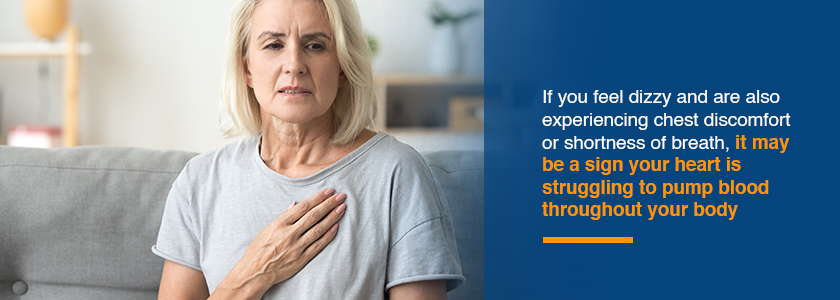
On its own, dizziness doesn’t signal heart trouble. Maybe you stood up too quickly or your blood sugar is low. But if you feel dizzy and are also experiencing chest discomfort or shortness of breath, it may be a sign your heart is struggling to pump blood throughout your body.
5. Heartburn, Nausea or Indigestion
These symptoms are especially common in women with heart problems. Experiencing any of these stomach issues without rhyme or reason — especially if you’re at risk for certain heart conditions or experiencing other heart-related symptoms — can be a sign that your heart is in trouble. Don’t ignore them!
6. Snoring and Fatigue
If your partner has suddenly started complaining about your loud, obnoxious snoring, it’s time to do some investigating. Noisy snoring that sounds like choking or gasping can be a sign of sleep apnea, a condition where you briefly stop breathing while you’re sleeping. Untreated sleep apnea can put a lot of strain on the heart and lead to heart problems. If you suspect you have sleep apnea, talk to your doctor about a sleep study and possible treatment options that will protect your heart from damage.
Excessive exhaustion or weakness when doing activities that never bothered you in the past may also be a sign your heart is working harder than it should. If you suddenly find yourself out of breath carrying groceries into the house or taking out the trash, talk with your doctor about what may be causing the problem.
7. Persistent Cough
There are plenty of medical reasons for coughing, so this isn’t a reason to suspect heart trouble unless you’re already at risk for heart problems or have already received a diagnosis of heart disease. If that’s the case, a persistent cough, especially one that results in you coughing up pink or white mucus, can be a sign your heart is allowing blood to seep into your lungs because it can’t keep up with your body’s demands.
8. Swelling in the Extremities
If the heart isn’t pumping blood normally, the blood can get backed up in the veins and cause bloating or swelling of the ankles, feet or legs. Heart failure can also interfere with kidney function, meaning your body retains more sodium and water, which can also cause bloating.
9. Sweating
If you’re sweating because you ran five miles, that’s normal. If you break out into a cold sweat after no physical activity and you’re also experiencing other symptoms on this list, your body may be warning you of a heart attack.
10. Irregular Heartbeat
Everyone has times when they’re nervous and their heart skips a beat or two. Or, maybe an extra cup of coffee on the way to the office has your heart feeling a little jittery. These aren’t signs of a heart attack — though they might be suggesting a switch to decaf. However, if this happens for more than a few minutes or occurs often, it could be a sign of atrial fibrillation.
Importance of Maintaining Good Heart Health
According to the Centers for Disease Control and Prevention, heart disease is the cause of one out of every four deaths in the United States. It is the leading cause of death for both women and men. Approximately 610,000 people die from heart disease each year. Heart disease does not discriminate between ethnicity or gender identity.
The statistics can be sobering, but it’s critical to understand them. Knowledge leads to early detection, which can save lives. Besides knowing the symptoms of a heart attack, it’s also essential to recognize the signs and symptoms that your heart isn’t working properly, as well as the things that may put you at higher risk of heart trouble.
If you smoke, have high cholesterol or high blood pressure, your doctor may have already discussed the impact these things can have on your heart’s ability to work as it should. But did you know diabetes, stress, thyroid disease, congenital heart defects and drug abuse can also put your heart at risk?
While some of these conditions may not be preventable, you can protect your heart by actively engaging with your doctor to keep your other health conditions under control. Your doctor can also regularly monitor your heart to ensure your other health conditions are not putting unnecessary strain on you. And, if they are, early detection can prevent serious complications later on.
Tips for Good Heart Health as You Age
While you can’t always prevent heart problems from happening, it’s never too late to adopt a heart-healthy lifestyle. Many people mistakenly believe being heart-healthy means eating bland food, spending hours on the treadmill and avoiding things they love. That couldn’t be further from the truth. And, as a bonus, the things that will improve the condition of your heart also slow down your body’s overall aging process. A double win!
1. Change Your Diet
The point of this isn’t to lose weight, although that may be an additional issue to address with your doctor. The reason to change your diet is to move away from foods that can contribute to heart problems, and consume more foods that can boost your heart’s health. A heart-healthy diet — often referred to as the “Mediterranean diet” — should include lots of fruits, whole grains, vegetables, fish and olive oil. It should avoid high quantities of meat, processed foods and sugar.
2. Get Moving
You may not be able to pump iron in the gym or run a marathon, but 30 minutes of physical activity each day goes a long way toward heart health. Take a walk, spend time gardening or working in the yard, play tennis with a friend — whatever motivates you to get up and move. If you live in an area that tends to be uncomfortably hot in the summertime, check out a local seniors’ program at the gym or join up with a mall walkers’ group. Incorporating physical activity into your daily routine can have far-reaching health benefits. Besides improving and protecting your heart’s health, it can reduce the risk of high blood pressure, certain cancers, Type 2 diabetes and dementia.
Besides physical activity, engage your brain every day. Take a class, join a book club or solve the daily crossword puzzle in the newspaper. Whatever you do, make a point to stay active in the world around you. A healthy brain has a significant impact on a healthy body.
3. Just Say No
Smoking is a huge factor in reducing your heart’s overall health. The best way to lower your risk of heart disease is to stop smoking immediately. Even lifelong smokers will see health benefits to quitting. Researchers at Johns Hopkins University found the risk of heart attack decreases after just one day of not smoking. Better late than never!
4. Get More Sleep
Sleep is your body’s way of refreshing and renewing its energy levels so it can function correctly. If you aren’t getting enough sleep, your weight, memory, emotions and even your heart will feel the effects. Make it your goal to get a healthy seven to nine hours each night. If you’re struggling to fall asleep or stay asleep, talk with your doctor about ways to improve your sleep.
Heart Problems in Elderly Patients
The risk of severe heart problems increases with age. Even with the most active adults and the best medical care, the heart can stop performing like it did in the past. In some cases, this may happen quickly. But, for a lot of older patients, heart problems develop gradually. When you know what you’re looking for, you can improve your chances of early detection and treatment to enable you to live more comfortably.
At CareGivers of America, we have dedicated ourselves to the goal of providing referrals for in-home and companion care in Monroe, Broward and Miami-Dade Counties. We pride ourselves on making high-quality referrals that result in the care and attention elderly adults need, no matter what medical diagnosis or condition they’re facing.
Are you looking for a companion or in-home care for a loved one? Contact us today for an in-home assessment!

